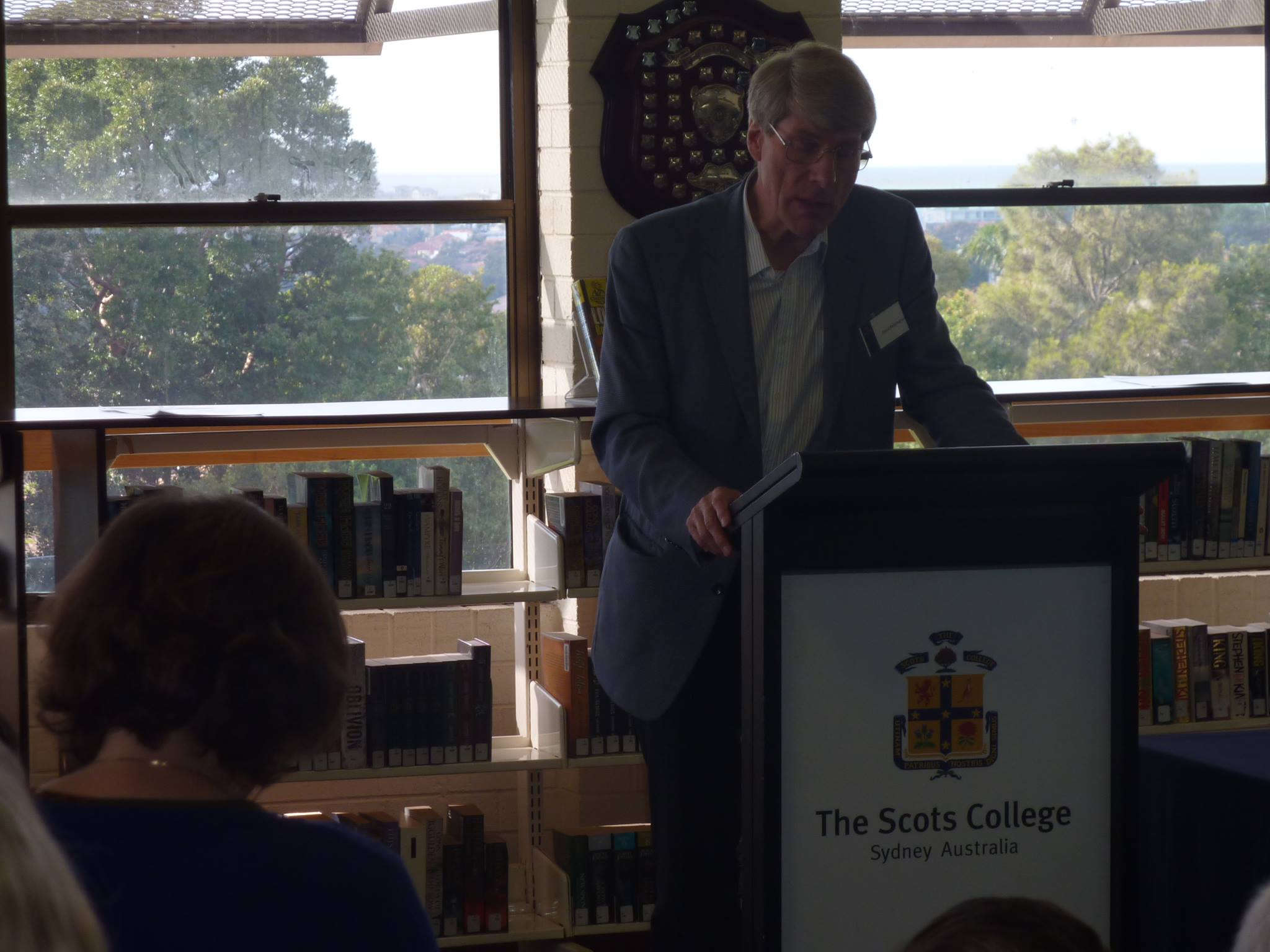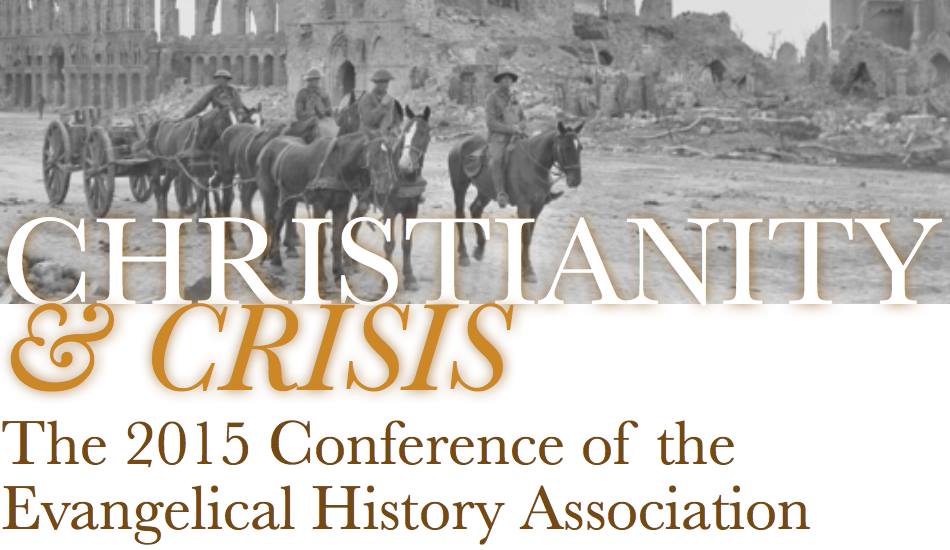On August 8th I had the privilege of attending this one-day Conference in Sydney. I happened to be in Sydney for another meeting on the Friday, so I changed my flight, stayed over, and was glad I did. There were about 70 people there all up, and I have never seen so many historians gathered in one place. As a theologian, I felt like the odd-one -out; my friend, Peter Elliott, says he usually feels like that at a theological conference, but felt right at home at this one! Go to the EHA Facebook page to see some photos.
The keynote address for the conference was delivered by renowned historian David Bebbington who spoke on the relation of evangelicalism and secularism, comparing developments in the United Kingdom and the United States. Of particular note were the differences between the two nations with respect to fundamentalism in the early twentieth-century, and the sheer numbers of evangelicals in the American context. I would say that Australia has more similarities with the British than the American experience, though that may be changing – or not. It may be that American evangelicals will face the challenges that have long faced their British and Australian cousins in a more secular, less churched society.
There were also some two dozen papers given in the elective sessions. The Conference theme was Christianity & Crisis, which allowed for a huge variety of topics, many to do with Australian church history. Peter Elliott from Perth Bible College gave a great paper on Katherine Chidley’s separatism in seventeenth-century England, while Malcolm Prentis from Australian Catholic University gave a fascinating paper on the various characters involved in a very public “Fundamentalist vs. Modernists” dispute in Geraldton in 1929. The paper was of particular interest to me because my father was born in Geraldton in 1929, and Monica and I lived in the Presbyterian manse there for a period of time when we lived in Geraldton.

My own paper was on Barth’s treatise Theological Existence Today written in twenty-four hours from June 24, 1933, the day the new German government intervened in Protestant church affairs, in their attempt to bring the church under the direct control of the Nazi party. Barth’s treatise was a clarion call for the independence of the church, and more importantly, for the church to be faithful to its own life and calling under the headship of Jesus Christ. For Barth, the battle was not against the so-called “German Christians” but for them. The battle was not against the Nazis or the government either. Rather, it was a battle for the Word of God, for the faithfulness of the church in a time of cultural crisis, and for the free and faithful proclamation of the gospel. Barth called for the church to be “the church under the cross.” I think the paper was reasonably well received. It seemed that way.
The Conference finally ended with a meal together in a local restaurant. That, too, was a special time, and I enjoyed getting to know a number of the participants in the conference a little better. There are very few positions for full time church historians in Australia, and yet there were many, many very talented and knowledgeable people at the Conference. I hope that the study of church history might have a renaissance of sorts in this country in years to come. We tend to forget how much the present is deeply connected to what has been, and indeed, how much the past is still alive here and now. William Faulkner reputedly said, “The past is not dead. The past is not even past.” Without a knowledge of church history Christians engage their present context with eyes half-closed. And that’s a great shame.
